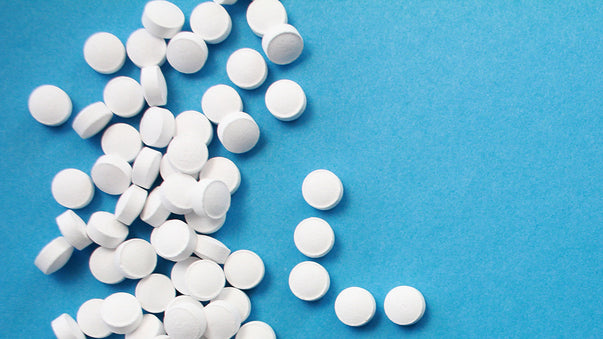The Latest Real Science News on COVID-19

A recent study found that people viewing a blend of news and entertainment on a social media site tended to pay less attention to the source of content they consumed. Therefore, they could mistake fake news for real news.
“We are drawn to these social media sites because they are one-stop shops for media content, updates from friends and family, and memes or cat pictures,” said study author George Pearson. “But that jumbling of content makes everything seem the same to us … Right now, the structure of information platforms - especially social media - may be reducing positive media literacy behaviors.”
This can be a problem for many people who avidly read everything that they find about the COVID-19 pandemic. To avoid that, I automatically dismiss: 1) over-sensationalized content; and 2) political propaganda disguised as content. Unfortunately, at times even top news sources push one or the other, or both.
I pay attention only to real science news. Below is some encouraging real science news on COVID-19, as well as the latest human enhancement news.
Anti-Parasite Drug Kills SARS-CoV-2 In Vitro
SARS-CoV-2 is the new coronavirus causing the COVID-19 pandemic.
A collaborative study published in Antiviral Research, led by the Monash Biomedicine Discovery Institute with the Peter Doherty Institute of Infection and Immunity, has shown that an anti-parasitic drug kills the virus within 48 hours. The drug is already available around the world.
The next steps are to determine the correct human dosage. This entails ensuring the doses shown to effectively treat the virus in vitro are safe for humans.
Mouse Vaccine Neutralizes SARS-CoV-2
Scientists at University of Pittsburgh have announced a potential vaccine against SARS-CoV-2. As reported in a study published in EBioMedicine, studies with laboratory mice show that the vaccine produces antibodies specific to SARS-CoV-2 at quantities thought to be sufficient for neutralizing the virus. The vaccine is delivered through a fingertip-sized patch.
The scientists are now in the process of applying for an investigational new drug approval from the U.S. FDA. And they are planning for a human clinical trial in the next few months.
No Evidence For or Against NSAID Safety
A recent study led by researchers at King's College London, published in ecancermedicalscience, has found that there is no evidence for or against the use of non-steroidal anti-inflammatory drugs such as ibuprofen for patients with COVID-19. This seems to contradict rumors that these drugs are dangerous for COVID-19 patients.
In addition, the study found that other types of drugs, such as TNF blockers and JAK inhibitors, may be safe to use.
Artificial Proteins as Logic Gates in Living Cells
Scientists at University of Washington have created artificial proteins that function as molecular logic gates. They are described in a study published in Science.
Like their electronic counterparts in computers, these new biochemical tools can be used to program the behavior of complex systems, such as gene regulation inside human T-cells. With the right gates operating inside living cells, inputs such as the presence of specific molecules can cause a cell to produce a specific output, such as activating or suppressing a gene.
This new advance might improve the durability of future cell-based therapies.
Living Drug Factories in the Body
Chemical engineers at MIT have developed a way to protect transplanted drug-producing cells from immune system rejection.
A research paper published in Nature Biomedical Engineering describes a way to encapsulate therapeutic cells in a flexible protective device that prevents immune rejection while still allowing oxygen and other critical nutrients to reach the cells. Such cells could pump out insulin or other proteins whenever they are needed.
The engineers’ vision is to have a living drug factory that you can implant in patients, which could secrete drugs as-needed in the patient.
Potential Boost to Cancer Immunotherapy
Mount Sinai researchers have discovered a way to regulate immune system cells in lung cancer tumors, suppressing them and allowing tumors to grow.
A study published in Nature reports that the researchers also figured out how reversing the process can help the immune system to prevent tumor formation or growth.
This offers a potential boost to cancer immunotherapy. Based on the findings, a clinical trial is being designed.
Flexible and Efficient Brain Implants
MIT engineers are developing 3D-printable neural implants that are soft and flexible. They can gently conform to the brain's contours and monitor activity over longer periods, without aggravating surrounding tissue.
The flexible implants are described in a research paper published in Nature Communications.
They could be softer alternatives to existing metal-based electrodes designed to monitor brain activity. And they may also be useful in brain implants that stimulate neural regions to ease symptoms of epilepsy, Parkinson's disease, and severe depression.
More Articles
Don't miss a beat! In our Pulse Newsletter, Thrivous curates the most important news on health science and human enhancement, so you can stay informed without wasting time on hype and trivia. It's part of the free Thrivous newsletter. Subscribe now to receive email about human enhancement, nootropics, and geroprotectors, as well as company news and deals.
Read more articles at Thrivous, the human enhancement company. You can browse recent articles in Thrivous Views. See other Pulse Newsletter articles. Or check out an article below.
-
Social Distancing and COVID-19 Clinical Trials
According to Wall Street Journal, the poorer countries of Central and Eastern Europe are handling COVID-19 better than richer Western ...
-
FDA Authorizes Two Drugs for COVID-19
The U.S. Food and Drug Administration (FDA) issued an Emergency Use Authorization (EUA) for hydroxychloroquine sulfate and chloroquine phosphate. The ...


